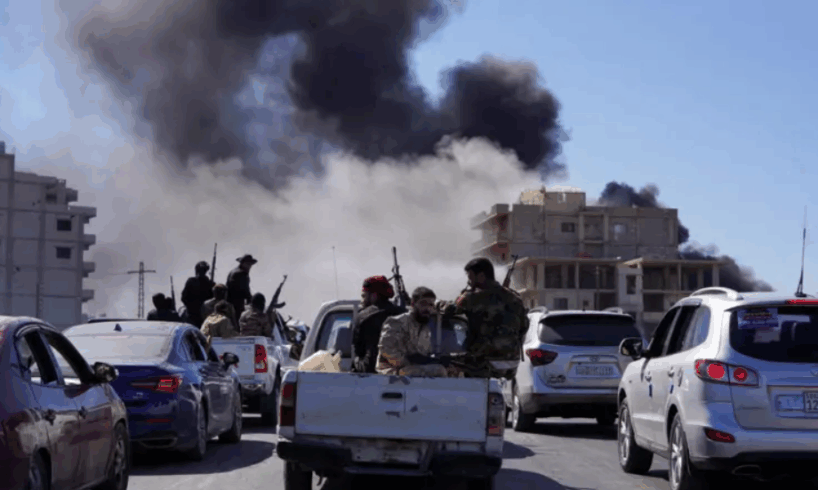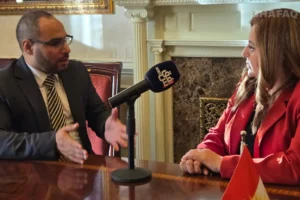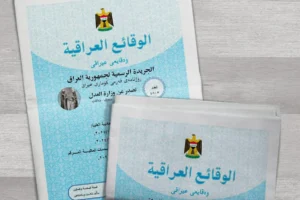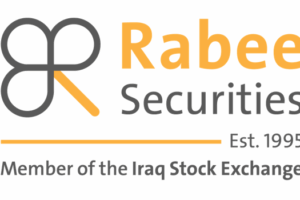
Shafaq News
The unfolding events in Syria, marked by shifting battles
and persistent political and security tensions, are no longer a matter of
internal Syrian concern. Developments across the country confirm a broader
regional entanglement.
The fall of former President Bashar al-Assad and the rise of
an interim authority headed by Ahmad al-Sharaa did not occur in isolation but
within the broader context of a regional conflict that ignited on October 7 in
Gaza.
Since then, Iraq has emerged as a central player in the
resulting crises, due to its strategic geography and the political and social
intersections linking its domestic situation with ongoing transformations in
neighboring countries, manifested in assassinations, military escalations, and
political realignments.
Iraq Caught in Syria’s Fire
Iraqi concerns about the spillover effects of Syria’s
instability are far from hidden. In southern Syria, clashes have erupted
between Druze groups and government forces backed by tribal fighters, with
Israel’s military and political involvement becoming increasingly evident.
Israeli officials have openly framed their support for the Druze as a means to
secure a buffer zone free of heavy weapons along their border.
Attention is now focused on the outcome of the Suwayda
battle and its regional implications. The conflict has exacerbated divisions
among Syria’s communities, ushering in a new phase of sectarian polarization.
Today, warring factions identify themselves by sect, and
this identity-based framing has penetrated daily life even in areas distant
from combat. In cities like Damascus and Daraa, many merchants have called for
cutting economic and social ties with Suwayda.
Regional Contagion and Internal Dilemmas
The conflict’s political, security, and social ramifications
have revived intense domestic debates in neighboring countries such as Lebanon
and Iraq over how to contain or mitigate its impact. These discussions have
gained urgency in light of verified reports and visual evidence of Lebanese and
Iraqi tribal fighters joining Syria’s tribal forces in battle.
Additionally, social media platforms have circulated videos
allegedly showing tribal fighters moving from Saudi Arabia to participate in
the Suwayda clashes.
In Lebanon, security forces responded to mounting tensions
by barring spectators from a football match between al-Safa, a club aligned
with Druze factions, and al-Ansar, generally associated with Sunni circles. The
Lebanese Football Federation rejected security officials’ request to cancel the
match, but fears of Syria-related unrest spilling into Lebanon prompted
authorities to hold the game without spectators.
In Iraq, the discussion centers on how best to respond to
evolving regional dynamics. The core question: should Iraq maintain both its
official and unofficial weapons stockpiles to safeguard national interests, or
should it move toward disarming Iran-aligned factions, which many see as a
primary source of potential internal crises?
IS STRENGTHENING THE IRAQI ARMY THE PRIORITY?
Sheikh Salam al-Jazaeri, a member of the Political Bureau of Asaib Ahl
al-Haq, warns that the developments in Syria aim to divide the country into
five mini-states—”a scenario Iraq entirely rejects.” Speaking to Shafaq
News, al-Jazaeri states, “Israeli ambitions in Syria directly affect Iraq,
especially as Israel seeks weak and submissive Arab states to serve its
expansionist agenda.”
He further stresses the magnitude of the terrorist threat
emanating from Syria, cautioning that if these groups are not eliminated, “the
consequences for Iraq will be extremely grave.”
On the issue of armed factions retaining their weapons,
al-Jazaeri acknowledges the primacy of official forces in Iraq but says they
remain vulnerable due to insufficient weaponry. He notes that factions and the
Popular Mobilization Forces (PMF) have called for strengthening the Iraqi army
by supplying it with advanced defense systems, citing the superior military
capabilities of countries like Israel and Turkiye.
“Israel promotes the slogan that its borders stretch from
the Nile to the Euphrates. Turkiye’s ambitions in Iraq are also clear, and there
are armed groups of various nationalities operating in Syria. Iraq is not
immune to these threats,” he explains. Based on this context, he concludes that
“calls to disarm the factions amount to weakening Iraq—something that is
far from achievable.”
DOES DISARMING FACTIONS MAINTAIN STABILITY?
In stark contrast, Iraqi politician Mithal al-Alusi sees parallels between
Israeli positions and those of Iraq’s armed factions regarding the Syrian
regime.
“The irony is
that these so-called factions, the PMF, and the Iraqi government all oppose the
Syrian regime and accuse it of serious crimes against the Druze,” al-Alusi
tells Shafaq News. He argues that Iraq’s political scene is plagued by “a
deep confusion in concepts and stances.”
Al-Alusi accuses Iran of deliberately blurring narratives in
Baghdad. He points out that “some now support Israeli strikes in Suwayda
while attacking the Syrian regime under the pretext that it is
Sunni-sectarian.”
He believes sectarianism is present on all sides, describing
the factions as militias and a long arm of Iran, stating, “Iraq has become
a battleground for Iran in its confrontation with Washington.” This, he
argues, explains attacks on American and foreign oil companies in the Kurdistan
Region.
Al-Alusi concludes that building a sovereign Iraqi state
begins with disarming these factions. “What militia leaders fail to grasp
is that all ideological justifications—whether Sunni, Shia, pro-American, or
pro-Iranian—do not legitimize the continued possession of arms,” he
asserts.
He also emphasizes that the weapons are unregulated and
illegal, adding, “These militias fear democracy and the emergence of a
real Iraqi state.”
Written and edited by Shafaq News staff





